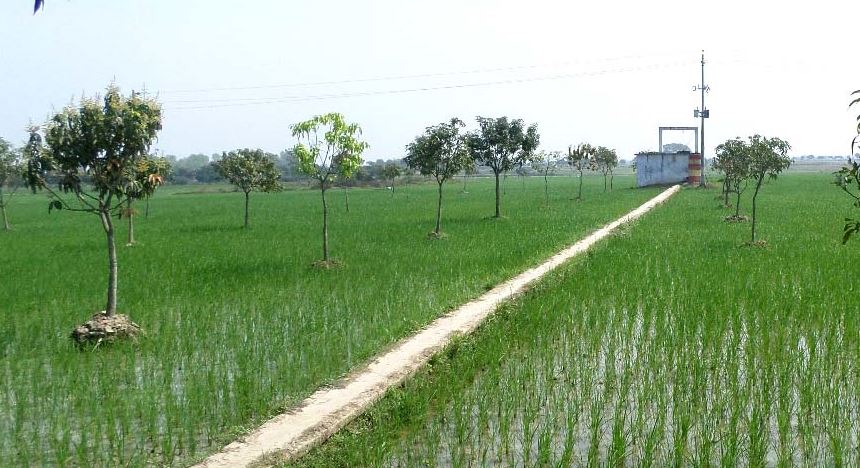News Flash

RAJSHAHI, Feb 17, 2025 (BSS)- Ataur Rahman, 50, a resident of Dewpara village
under Godagari upazila in the district, has attained additional money after
cultivating cauliflower through using irrigation water during the current
winter season
Previously, he said only a single rainfed crop could be produced in the area.
Around 15-20 mounds of rice could be yielded from per acre of land. But, no
crop could be produced if there was no rain in time.
But, at present, around 80-90 mounds of crops are being produced from per
acre of land. Many of the single crop lands were transformed into triple-
cropping.
Rahman said a silent revolution has happened in the field of crop production
almost round the year as a result of expansion of irrigation to the farming
fields in the region, particularly the vast Barind tract.
Irrigation water is being used in various crops and vegetables, including
paddy, wheat, potato, vegetable and mango, guava, jujube and malta orchards.
Muhammad Abdullah, 38, of Tantoi village under Sapahar upazila in Naogaon
district, said they are being benefited from various promotional activities,
including deep-tube-wells, low lift pumps driven by solar power and re-
excavation of derelict ponds and canals and overhead tanks for supplying
drinkable water.
Barind Multipurpose Development Authority (BMDA), the ever-largest
irrigation-providing government organization in the country's northwest
region, has implemented various types of need-oriented development programmes
Talking to BSS here today, Jahangir Alam Khan, Additional Chief Engineer of
BMDA, said they are supplying irrigation water to around 10.36 lakh hectares
of land benefitting around 10.62 lakh farmers during the current Rabi season.
He said 15,828 deep tube-wells have, so far, been installed in the region
consisting of 16 districts in Rajshahi and Rangpur divisions.
Apart from constructing and installing of 15,895.06-kilometer irrigation
water distribution systems, 650 dug-wells, 576 low lift pumps (LLPs) driven
by electricity and 450 LLPs run by solar power were constructed.
Engineer Jahangir Khan said they have freed 13,057 hectares of land from
water logging and re-excavated 4,257-kilometer derelict canals, constructed
778 cross-dams in addition to installing 13 pontoons in rivers for making the
irrigation system more successful.
He said 572 other dug-wells run by solar power were installed in wetlands of
Raktadaha Beel and Tepa Beel in Naogaon and Chhatragachha Beel in Rajshahi
district for boosting crops through bringing the lands under proper
irrigation.
Besides, overhead tanks were constructed adjacent to the irrigation deep
tube-wells for supplying drinking water to 1,592 households living in the
remote areas.
Around 2.58-crore trees were transplanted for reducing carbon emission in the
drought-prone Barind area.
Around 1.49 lakh farmers were imparted need-based training for making them
competent for boosting crops.
Meanwhile, the BMDA is very much optimistic about operating its irrigation
deep tube-wells through using mobile apps as part of its efforts to bring
modernization in its irrigation system.
"We are talking with experts both home and abroad about installation and
promotion of the apps and some of those have shown interest in this field,"
said Dr Muhammad Asaduzzaman, Chairman of BMDA, while talking to BSS at his
office here Sunday.
"If we can promote the apps successfully the farmers can avail their
respective irrigation facilities from anywhere and anytime subject to
vacancy," he hoped.
He said there are many controversies related to the manual operation of deep
tube-wells and time has come to overcome the odd situation. He, however,
mentioned that the problem can't be solved overnight.
In the field, many of the grassroots farmers are annoyed with the
performance of pump operators, but they are key players in making the
irrigation system functional.
He said surface water irrigation is being promoted as its prospect is very
bright in the region, particularly in its vast Barind area enriched with
scores of natural water bodies which remain in uncared and derelict condition
at present.
Promotion of surface water in irrigation to the farming fields is being
judged as the best way of mitigating the gradually mounting pressure on
underground water in the drought-prone area.
Dr Asad said additional 12.35 lakh tonnes of crops are being produced every
year as a result of extending irrigation together with promoting need-based
infrastructural developments in the region at present.